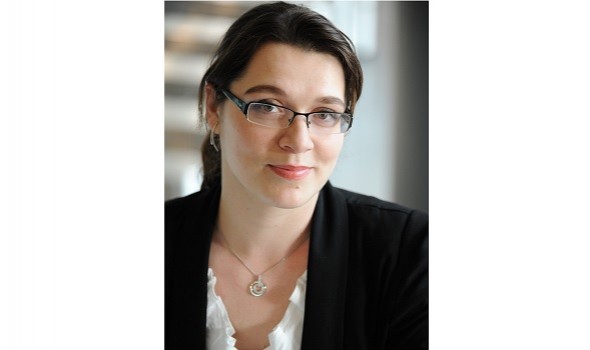‘Buddy With’ aims to end women’s silent struggles
‘Buddy With’ aims to end women’s silent struggles

Yuliana Topazly knows what it means to be thrown into the deep end: when she was 19 her Russian parents sent her, alone, at a fortnight’s notice to learn English.
“Here’s the visa, here’s the passport, go to UK,” was the message.
So she went – to find that her parents’ friend, who was supposed to meet her at the airport, was not there. He had got the wrong day.
Topazly (“I love England, but my heart is Russian”) has come a long way since then: she’s married to a Bahamian, has a daughter, runs her own business and has won several awards and accolades, including being named among the Top 100 Most Inspiring Entrepreneurs in the UK.
Now 35, she is building on her award-winning South London-based social enterprise, My OutSpace Business Centre, to launch Buddy With - a platform that enables women trying to deal with a specific problem connect with others in their area who face the same difficulty, as well as local champions and support organisations.
Topazly is a co-founder and co-director of the Business Centre, which specialises in supporting women, especially migrant women with children, into employment and self-employment.
With the help of specially designed online platform to be launched in July, the Centre intends to expand its services to fill what Topazly has identified as a gap in health and social services: facilitated peer to peer support network, clear signposting and mentoring women, particularly migrants, who are struggling to raise children and families and access world of work.
That could mean helping them to find relevant information, find work, access childcare or medical help with problems such as post-natal depression, from which Topazly herself has suffered. Isolation, depression and mental health generally need particular attention among migrant communities that do not recognise it as an issue.
“We want to create awareness and take it to a national level because 88 per cent of working parents suffer stress-related health problems and 43% struggle with depression; 1 in 10 women develop mental health illness during pregnancy or within the first year after having a baby’ - and something needs to be done.
“It’s not a campaign,” she emphasises. “It’s creating awareness and sharing right information as early as possible”.
“Our vision is to support thousands of women who struggle in silence when they don’t enjoy their children and their lives and who are not economically active.
“We want to support them in engaging with the world and making happy families”.
She has experienced many of the problems first-hand. When she tried to discuss flexible working hours with a previous employer “I got the answer ‘No”, which wasn’t very nice.
“I said, ‘I don’t see my child and I kill myself at work.’ My husband is a migrant, too, and both our families are miles away, so we haven’t got support from relatives.”
Help doesn’t necessarily mean professional expertise. “Within the last few years the biggest barrier for working mothers has been access to child care, but we see that peer-to-peer networks are also invaluable.”
The free-to-register website is designed to tap into support for all the problem areas, putting parents in touch with local to them organisations, “local champions” (parents who physically help other parents), and individuals.
Longer-term, her aim is to work with companies and help them improve well-being and the work environment for parents. This will reduce absenteeism and time taken off because of stress and mental illness.
Topazly visits Russia regularly, but admits, “If I go back I’ll probably find myself being a migrant in Russia.”
* My OutSpace Business Centre is looking for volunteer “champions” across the UK


